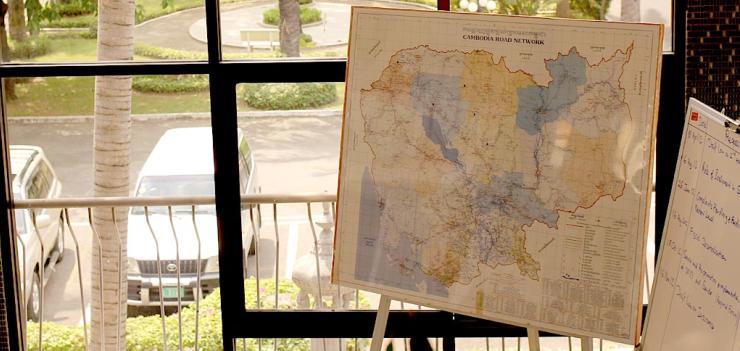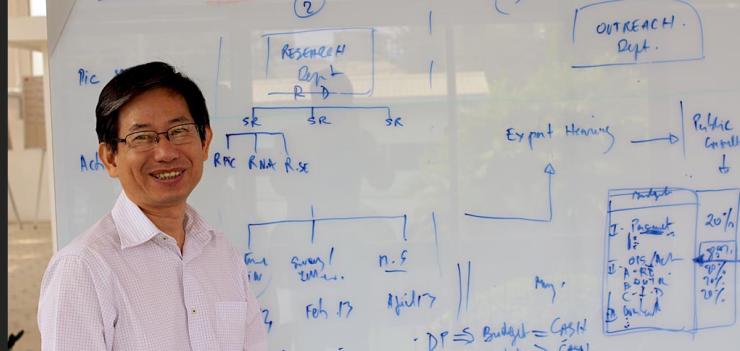EWMI provided funding to support the Parliamentary Institute of Cambodia (PIC), an independent organization whose mission is to support capacity development, research and training, and to develop information networks for members of the Cambodian Parliament. EWMI’s funding and technical assistance came at a critical time in PIC’s development, and was used to help develop systems, policies and procedures which enabled PIC to secure long term funding. The PIC has made notable progress over the past few years to balance powers within the Cambodian government. Further progress still needs to be achieved in order for Parliament to perform its duties in conformity with international democratic standards, but certain institutional support is needed. PIC aims to provide this support over the long-term as a permanent institution, rather than as a single project initiative.
The Parliamentary Institute of Cambodia (PIC) operates independently of any political party, and works with all members of Parliament to research aspects of the law making process which are directly requested from Parliamentarians and their nine technical commissions. Through this research process, PIC ensures the coordination and sharing of the different diverse interests and knowledge of Parliamentary members, developing new networks through local sources of Parliamentary expertise. These networks combined with the high quality research PIC provides has developed the research capacity of Parliament, allowing them to make informed decisions, shape and propose legislation, and analyze new policies. This can further contribute to shifting the Parliamentarians’ responsiveness from their party to their constitutions and shifting the Parliament’s role in government. The goal of the Institute is to build a Parliamentary body that is more pro-active in shaping the country’s policies in order to better balance the powers within the Cambodian democracy.
In the past, the Institute has completed a number of research studies for the Cambodian Parliament, including: the effects of fiscal decentralization in Cambodia; the role of the Senate in relation to sub-national democratic development; and internal rules of the Senate and experiences in other countries in implementing internal rules. Their current projects include research on Constitutional implementation, migration, health, and alcohol policy. With this high quality research at their disposal, Parliament members can begin to debate and discuss new policies and shape the agenda for the country.


